Use this nursing care plan and management guide to help care for patients with bipolar disorders. Learn about the nursing assessment, nursing interventions, goals and nursing diagnosis for bipolar disorders in this guide.
What are Bipolar Disorders?
Bipolar disorders, which in the ICD-10 is classified as bipolar disorder, or manic-depressive illness (MDI), is a common, severe, and persistent mental illness. This condition is a serious lifelong struggle and challenge. In the 5th edition of the Diagnostic and Statistical Manual of Mental Disorders (DSM-5), bipolar disorder constitutes a spectrum of mood disorders that includes BP-I, BP-II, and cyclothymia, and is thought to be a “bridge” between schizophrenia spectrum disorders and depressive disorders in terms of the symptomatology, family history, and genetics (Soreff & Xiong, 2022).
The diagnosis of bipolar disorder type I (BP-I) requires the presence of a manic episode of at least one week’s duration or that leads to hospitalization or other significant impairment in occupational or social functioning. The episode of mania cannot be caused by another medical illness or by substance abuse. These criteria are based on the specifications of the DSM-5 (Soreff & Xiong, 2022).
According to DSM-5, the general diagnostic criteria for bipolar and related disorders include the following:
- BD-I: Criteria met at least for one manic, which might have been preceded or followed by a hypomanic episode or major depressive episode.
- BD-II: Criteria met for at least one current or past hypomanic episode and a major depressive episode. There should be no manic episodes.
- Cyclothymic disorder: Hypomania symptoms that do not meet the criteria for hypomanic episodes and depressive symptoms that do not meet the criteria for major depressive episodes in numerous periods for at least two years. The criteria for major depressive, manic, or hypomanic episodes should never have been met.
- Specified bipolar and related disorders: Bipolar-like phenomena that do not meet criteria for BD-I, BD-II, or cyclothymic disorder due to insufficient duration or severity.
- Unspecified bipolar and related disorders: Characteristic symptoms of bipolar and related disorders that cause clinically significant distress or impairment in social, occupational, or other important areas of functioning but do not meet the full criteria for any category previously mentioned (Jain & Mitra, 2023).
Nursing Care Plans and Management
Nursing care planning goals for clients with bipolar disorder include: providing a safe environment, improving self-esteem, enhancing social support, encouraging self-care independence, guiding clients toward socially appropriate behavior, promoting family involvement, and providing education about the condition and how to manage it effectively.
Nursing Problem Priorities
The following are the nursing priorities for patients with bipolar disorders:
- Mood stabilization. Managing and stabilizing mood fluctuations to minimize the severity and duration of manic and depressive episodes in patients with bipolar disorder.
- Medication adherence. Ensuring consistent adherence to prescribed medications to effectively manage symptoms and prevent relapses.
- Suicide risk assessment and prevention. Assessing and monitoring the risk of suicide in patients with bipolar disorder, implementing appropriate interventions, and providing support to prevent self-harm.
- Psychoeducation and self-management skills. Providing education to patients and their families about bipolar disorder, its symptoms, triggers, and strategies for managing the condition to enhance self-awareness and empower them to actively participate in their treatment.
- Psychosocial support and therapy. Offering psychosocial support, counseling, and therapy to address emotional challenges, improve coping skills, and enhance overall quality of life for patients with bipolar disorder.
Nursing Assessment
Assess for the following subjective and objective data:
- See nursing assessment cues under Nursing Interventions and Actions.
Nursing Diagnosis
Following a thorough assessment, a nursing diagnosis is formulated to specifically address the challenges associated with bipolar disorders based on the nurse’s clinical judgment and understanding of the patient’s unique health condition. While nursing diagnoses serve as a framework for organizing care, their usefulness may vary in different clinical situations. In real-life clinical settings, it is important to note that the use of specific nursing diagnostic labels may not be as prominent or commonly utilized as other components of the care plan. It is ultimately the nurse’s clinical expertise and judgment that shape the care plan to meet the unique needs of each patient, prioritizing their health concerns and priorities.
Nursing Goals
Goals and expected outcomes may include:
- The client will respond to the medication within the therapeutic levels.
- The client will sustain optimum health through medication management and a therapeutic regimen.
- The client will drink 8 oz of fluid every hour throughout the day while in the acutely manic stage.
- The client will remain free from falls and abrasions every day while in the hospital.
- The client will be free of dangerous levels of hyperactive motor behavior with the aid of medications and nursing interventions within the first 24 hours.
- The client will spend time with the nurse in a quiet environment three to four times a day between 7 am and 11 pm with the aid of nursing guidance.
- The client will take short voluntary rest periods during the day.
- The client will be free of excessive physical agitation and purposeless motor activity within two weeks.
- The client will be free of injury within two to three weeks:
- Stable cardiac status.
- Skin free of abrasions and scrapes.
- Well-dehydrated.
- The client will verbalize control of feelings.
- The client will respond to external controls (medications, seclusion, nursing interventions) when potential or actual loss of control occurs.
- The client will refrain from provoking others to physical harm, with the aid of seclusion or nursing interventions.
- The client will display nonviolent behavior toward others in the hospital, with the aid of medications and nursing interventions.
- The client will seek help when experiencing aggressive impulses.
- The client will refrain from verbal threats and loud, profane language toward others.
- The client will be safe and free from injury.
- The client will initiate and maintain goal-directed and mutually satisfying activities/verbal exchanges with others.
- The client will find one or two solitary activities that can help relieve tensions and minimize the escalation of anxiety with the aid of a nurse or occupational/activity therapist.
- The client will focus on one activity requiring a short attention span of 5 minutes three times a day with nursing assistance.
- The client will sit through a short, small group meeting free from disruptive outbursts.
- The client will demonstrate an ability to remove themself from a stimulating environment in order to “cool down” by discharge.
- The client will participate in unit activities without disruption or demonstrating inappropriate behavior by discharge.
- The client will put feelings into words instead of actions when experiencing anxiety or losing control before discharge.
- The client will report an absence of delusions, racing thoughts, and irresponsible actions as a result of medication adherence and environmental structures.
- The client will return to the pre-crisis level of functioning after the acute/severe manic phase is past.
- The client will cease the use of manipulation to obtain needs and control others.
- The client will demonstrate an absence of destructive behavior toward self or others.
- The client will be protected from making any major life decisions (legal, business, marital) during an acute or severe manic phase.
- The client will respond to limit-setting techniques with aid of medication during the acute and severe manic phases.
- The client will respond to external controls (medication, seclusion, nursing intervention) when potential or actual loss of control occurs.
- The client will retain valuables or other possessions while in the hospital.
- The client will demonstrate a decrease in manipulative behavior.
- The client will demonstrate a decrease in demanding and provocative behavior.
- The client will seek competent medical assistance and legal protection when signing any legal documents regarding personal or financial matters during the manic phase of illness.
- The family members and/or significant others will discuss with the nurse/counselor three areas of family life that are most disruptive and seek alternative options with aid of nursing/counseling interventions.
- The family members and/or significant others will state and have in writing the names and telephone numbers of at least two bipolar support groups.
- The family members and/or significant others will state that they have gained support from at least one support group on how to work with family members when he or she is manic.
- The family members and/or significant others will state their understanding of the need for medication adherence, and be able to identify three signs that indicate a possible need for intervention when their family member’s mood escalates.
- The family members and/or significant others will briefly discuss and have in writing, the names and addresses of two bipolar organizations, two Internet site addresses, and medication information regarding bipolar disorder.
- The family members and/or significant others will state that they find needed support and information in a support group (s).
- The family members and/or significant others will identify the signs of increased manic behavior in their family members.
- The family members and/or significant others will state what they will do (whom to call, where to go) when the client’s mood begins to escalate to dangerous levels.
- The family members and/or significant others will demonstrate an understanding of what bipolar disorder is, the medications, and the need for adherence to medication and treatment.
- The client will sleep six hours out of 24 with aid of medication and nursing measures within three days.
- The client will eat half to one-third of each meal plus one snack between meals with aid of nursing intervention.
- The client will have normal bowel movements within 2 days with the aid of high-fiber foods, fluids, and if needed, medication.
- The client will wear appropriate attire each day while in the hospital.
- The client will bathe at least every other day while in the hospital.
- The client will sleep six to eight hours per night.
- The client will have a weight within normal limits for age and height.
- The client will have bowel habits within normal limits.
- The client will dress and groom themself in an appropriate manner consistent with the pre-crisis level of dress and grooming.
Nursing Interventions and Actions
Therapeutic interventions and nursing actions for patients with bipolar disorders may include:
1. Promoting Safety and Preventing Injury
Clients with bipolar disorder are at risk for injury due to a combination of affective, cognitive, and psychomotor factors that can affect their judgment, impulsivity, and coordination. Furthermore, bipolar disorder is associated with neurologic imbalances, which can further increase the risk of injury. Exhaustion, dehydration, and rage may also contribute to the risk of injury in clients with bipolar disorder. The main complications of bipolar disorder, or manic-depressive illness (MDI) are suicide, homicide, and addictions (Soreff & Xiong, 2022). Clients with bipolar disorder may also experience neurologic imbalances that can contribute to the development of manic episodes, psychotic symptomatology, and rage. During manic episodes, clients may engage in impulsive and reckless behavior, including aggression and violence toward themselves or others. Additionally, the presence of psychotic symptoms and rage can further increase the risk of violent behavior in individuals with bipolar disorder. Aggressive behavior in bipolar disorder shows a direct prognostic value, being linked to suicide attempts and more frequent hospitalizations, the severity of mania, the presence of mixed symptoms, and comorbid borderline personality disorder (Fico et al., 2020).
Assess the client’s current mood and behavior, observe for signs of a manic or depressive episode, as well as any impulsive or reckless behavior that may increase the risk of injury.
This is to determine whether the client is currently experiencing a manic, depressive, or stable state. This information will identify potential risks for injury and take measures to prevent harm to the client or others. Clients emerging from depression are thought to be at an increased risk of suicide. The risk of self-destructive behavior and death is lifelong (Soreff & Xiong, 2022).
Assess the client’s cognitive function, including attention, memory, and decision-making skills.
The client’s cognitive function will identify any deficits or impairments that may increase their risk of injury. Symptoms of mania may include reckless behavior without regard for consequences and severe thought disturbances. Clients in the manic phase can become homicidal by acting on delusions (Soreff & Xiong, 2022).
Assess the client’s use of substances, including alcohol and drugs.
Some substances can worsen the symptoms of bipolar disorder or trigger mood episodes such as depression or mania. Substance use can also lead to further complications and increase the risk of harm, including accidents, injuries, or even overdose. One major area of concern is the relationship between violent crime and bipolar disorder. This danger is particularly present and prominent with clients who have a substance abuse problem (Soreff & Xiong, 2022).
Observe for signs of lithium toxicity (e.g., nausea, vomiting, diarrhea, drowsiness, muscle weakness, tremor, lack of coordination, blurred vision, or ringing in the ears).
There is a small margin of safety between therapeutic and toxic doses. Symptoms of intoxication include coarse tremors, hyperreflexia, nystagmus, and ataxia. Clients often show varying levels of consciousness, ranging from mild confusion to delirium. Gastrointestinal effects typically occur within one hour of ingestion (Hedya et al., 2023).
Observe the client for indications for inpatient management.
Clients diagnosed with bipolar mania or depression and severe symptoms must be referred for urgent/emergent mental health intervention. The indications for inpatient treatment in a person with bipolar disorder, include the danger to self, danger to others, delirium, marked psychotic symptoms, total inability to function, total loss of control, and medical conditions that warrant medication monitoring (Soreff & Xiong, 2022).
Provide structured solitary activities with the assistance of a nurse or aide.
The structure provides focus and security. Clients with bipolar disorder are especially sensitive to the disruption of routines. A malfunctioning body clock is a prime suspect in the causes of the dramatic mood shifts that define the bipolar disorder, according to research published in Current Psychiatry Reports. A routine also allows the client to feel some sense of control in their life (McMillen, 2021).
Provide frequent rest periods.
This prevents exhaustion. Sleep deprivation may be associated with poor eating habits in bipolar clients, given the association of sleep deprivation with certain hormonally influenced responses that lead to enhanced caloric intake. Furthermore, sleep disturbances in bipolar disorder are linked to reduced energy levels and thus, a lessened likelihood of engaging in other healthy behaviors (Gold & Sylvia, 2016).
Encourage the client to communicate openly about their feelings and concerns, and provide a nonjudgmental and supportive environment.
This can help the client develop coping strategies and problem-solving skills to manage their symptoms and minimizes the risk of impulsive or risky behaviors. Clients with bipolar disorder may need to take medications and attend therapy sessions to manage their condition. Open communication helps clients feel more comfortable talking to their healthcare providers about their symptoms and any concerns they may have about their treatment. Open communication can help identify triggers and warning signs of mood episodes. This helps them take action early to prevent or lessen the severity of mood episodes.
Maintain a low level of stimuli in the client’s environment (e.g., loud noises, bright light, low-temperature ventilation).
This helps minimize the escalation of anxiety. A highly-stimulating environment can trigger symptoms of mania or hypomania in clients with bipolar disorder. Overstimulation, such as loud noise, bright lights, or a fast-paced environment, can disrupt sleep patterns, increase irritability and anxiety, and trigger racing thoughts and impulsive behavior.
Encourage the client to engage in activities that are safe and structured, such as exercise or creative activities.
Exercise has been shown to have mood-stabilizing effects and can help minimize the severity and frequency of mood swings in clients with bipolar disorder. Clients in the depressed phase are encouraged to exercise. These individuals should try to develop a regular daily schedule of major activities, especially times of going to bed and waking up. A regular exercise schedule should be proposed for all clients, especially those with bipolar disorder. Both exercise and a regular schedule are keys to surviving this illness (Soreff & Xiong, 2022).
Provide a safe and supportive environment for the client, including ensuring that the client’s room is free from potential hazards and that safety measures are in place (such as bed rails or padded walls).
Clients with bipolar disorder may experience symptoms that can impair their judgment, increase impulsivity, and heighten the risk of accidents or self-harm. Therefore, it is essential to reduce potential hazards in the client’s environment and provide safety measures as needed. Homicidal clients, often in the manic phase, can be very demanding and grandiose. In this context, they are angered if others do not immediately comply with their wishes, and they can turn dramatically violent (Soreff & Xiong, 2022).
Administer phenothiazines for acute mania and enforce seclusions to decrease any physical harm.
Exhaustion and death result from dehydration, lack of sleep, and constant physical activity. Phenothiazine antipsychotics, which are classified as first-generation antipsychotics, are efficacious for treating both psychotic and non-psychotic manic and mixed episodes, as well as hypomania (Soreff & Xiong, 2022).
Redirect violent behavior.
Physical exercise can decrease tension and provide focus. If the client diagnosed with bipolar disorder does not have strategies to cope with irritability, it can lead to angry outbursts. Many clients with bipolar disorder experience anger, which can appear out of character for them. (Legg, 2019)
Protect the client from giving away money and possessions. Hold valuables in a hospital safe until rational judgment returns.
The client’s “generosity” is a manic defense that is consistent with irrational, grandiose thinking. In some cases, extreme grandiosity can take the form of delusions or fixed beliefs unsupported by facts and reality. For example, the client may run through their savings buying expensive gifts for loved ones because they feel convinced that they are about to get a promotion and significant raise (Saripalli & Raypole, 2021).
Work with the client to develop a safety plan that includes methods to manage mood swings and prevent injury, as well as emergency contacts and resources.
The safety plan can help clients recognize when they are at risk for injury and take steps to prevent it. It also ensures a rapid response in case of a crisis. Therefore preventing harm to the client and others. Clients with a possible diagnosis of bipolar depression must also be referred for urgent/emergent mental health intervention if they present with serious delusion, visual/auditory hallucinations, confusion, catatonic behavior, extreme negativism/mutism, and/or inappropriate affect of a bizarre or odd quality (Soreff & Xiong, 2022).
Assist in transferring the client to the appropriate facility or with the admission process.
The treatment of bipolar disorder is directly related to the phase of the episode and the severity of that phase. For example, a person who is extremely depressed and exhibits suicidal behavior requires inpatient treatment. If the client is in a short-term inpatient care unit and has not made significant progress, reevaluate the management strategy. Transfer to a long-term inpatient care unit might also be considered (Soreff & Xiong, 2022).
Place the client in suicide precautions.
A client with bipolar disorder, especially one in a depressive episode, may present with a significant risk for suicide, especially those with an early onset of symptoms. Serious suicide attempts and specific ideation with plans to constitute clear evidence of the need for constant observation and preventive protection; consider referring these individuals to mental health specialty care (Soreff & Xiong, 2022). A sign on the door indicating visitors need to report to the nurse’s station prior to entering the room. All sharp objects and unnecessary cables, cords, shoe laces, and equipment should be removed from the client’s room. Linens should be limited. A designated suicide watcher may be appointed as appropriate (Upstate University Hospital, 2019).
Frequently assess the client’s behavior for signs of increased agitation and hyperactivity.
Early detection and intervention of escalating mania will prevent the possibility of harm to self or others, and decrease the need for seclusions. Sometimes, a client’s behavior can be totally out of control, which is a particular concern during a manic episode. In this situation, the client’s behaviors are so beyond limits that they destroy their career and can be harmful to those around them (Soreff & Xiong, 2022).
Assess for predictors of aggressive and violent behavior.
There is consensus amongst researchers that there is a positive association between underlying mental disorders, such as bipolar disorder, and violent behavior. According to the NICE Expert Committee Report, a lifetime prevalence of violence in the non-psychiatric population of 7.3% was lower than those with underlying mental illness at 16.1%. The tendency towards violent behavior increases in the presence of substance misuse, irrespective of the presence of underlying mental disorders (Adeniyi, 2021).
Perform a mental status examination.
A mental state examination should be attempted before sedating the client. This often proves difficult to accomplish in the context of a violent and aggressive client; however, healthcare professionals should document their attempt at accomplishing this task including the findings. The goal is to uncover the underlying etiology of the client’s aggressive and violent behavior (Adeniyi, 2021).
Use a calm and firm approach.
This provides structure and control for a client who is out of control. Remain calm, maintain a confident and competent demeanor, and attempt to de-escalate by engaging the client in a conversation (Citrome & Bienenfeld, 2022).
Use short, simple, and brief explanations or statements.
A short attention span limits the understanding of small pieces of information. Simple sentences are easier to understand, especially for clients who may be experiencing agitation. Clear communication can reduce misunderstandings and potential triggers for aggressive behavior.
Remain neutral as possible; do not argue with the client.
The client can use inconsistencies and value judgments as justification for arguing and escalating mania. Avoid arguments between staff members in front of the client too. Use brief sentences to maintain control of the conversation and prevent the client from becoming more agitated or escalating the situation.
Maintain a consistent approach, employ consistent expectations, and provide a structured environment.
Clear and consistent limits and expectations minimize the potential for clients’ manipulation of staff. Limit-setting helps establish clear boundaries for acceptable behavior. By setting limits, clients understand what is expected of them and what is not tolerated, which can reduce the likelihood of aggressive behavior in the future.
Redirect agitation and potentially violent behaviors with physical outlets in an area of low stimulation (e.g., punching bag).
This can help to relieve pent-up hostility and relieve muscle tension. Providing the client with safe choices can help give them a sense of control and reduce feelings of frustration and powerlessness. If the client is fixated on a particular issue or behavior, it can help to redirect their attention to something else.
Decrease environmental stimuli (e.g., by providing a calming environment or assigning a private room)
This helps decrease the escalation of anxiety and manic symptoms. It is important to find a balance between stimulation and calmness for clients with bipolar disorder. The client should still have access to social and physical activities to promote positive mental health, but the environment should also provide adequate opportunities for rest, relaxation, and downtime.
Alert staff if a potential for seclusion appears imminent. The usual priority of interventions would be: firmly setting limits, chemical restraints (tranquilizers), and seclusions.
If nursing interventions (quiet environment and firm limit setting) and chemical restraints (tranquilizers–e.g., haloperidol [Haldol]) have not helped dampen escalating manic behaviors, then seclusion might be warranted. Non-antipsychotic medication approaches for agitation are discussed first, followed by a review of the relevant antipsychotics (Soreff & Xiong, 2022).
Chart, in nurse’s notes, behaviors; interventions; what seemed to escalate agitation; what helped to calm agitation; when as-needed (PRN) medications were given and their effect; and what proved most helpful.
Staff will begin to recognize potential signals for escalating manic behaviors and have a guideline for what might work best for the individual client. Differentiating patterns of violence central to the development of a differential diagnosis is achieved by analyzing the pattern of the violence. Whether aggressive episodes are singular or repetitive, with low or high potential for the actual injury, helps guide the clinician in formulating immediate treatment management plans and a long-term strategy (Citrome & Bienenfeld, 2022).
Ensure plans or protocols are in place in case of an incident with an aggressive or violent client.
Staff, especially those working in emergency departments, should prepare, anticipate, and readily prevent aggression. Every health facility must have laid down protocols to ensure the safety of all clients and staff. The protocol should contain the triage plan for early signs of aggression and the roles of each staff in such a situation. There must also be backup plans for the safety of staff, clients, and properties, such as placing security personnel and acquiring services from the local police department, and the emergency medical personnel. Each healthcare facility must have a designated place/room for calming down aggressive and violent clients and regular monitoring (Adeniyi, 2021).
Administer pharmacologic agents as indicated.
The aim is to reach calm within a maximum period of two hours whilst avoiding adverse effects. Olanzapine was the most frequently studied drug in a systemic review. Changes at two hours showed the strongest effect for haloperidol plus promethazine, risperidone, olanzapine, droperidol, and aripiprazole. Adverse effects are most prominent for haloperidol and haloperidol plus lorazepam. Oral benzodiazepines should be prioritized, according to the Essential Drug List, because it is the safest route (Adeniyi, 2021).
Consider using restraints carefully and in line with protocols and the client’s rights.
Manual restraints may be necessary to administer treatment to the client. Mechanical restraints should be used only when absolutely necessary to protect the client and others in an acute setting for as short a period as possible. Types, sites, and duration of any restraints used must be documented with 15-minute monitoring of vital signs, the mental state, restraint sites, and reasons for use (Adeniyi, 2021).
2. Providing Therapeutic Communication
Clients with bipolar disorder may experience impaired social interaction due to their mood swings, which can make it difficult to maintain stable relationships and communicate effectively. Additionally, the high levels of energy and agitation that are associated with bipolar disorder can make it difficult for clients to focus and engage in social situations. Finally, the stigma surrounding mental illness may also contribute to social isolation and difficulties in forming relationships for individuals with bipolar disorder.
Assess the client’s current mood state and level of agitation or hyperactivity.
During manic episodes, individuals with bipolar disorder may experience heightened energy levels, impulsivity, and agitation, which can affect the ability to engage in social interactions in a healthy and productive way. The mood disturbance during a manic episode is sufficient to cause impairment at work or danger to the client or others. The mood is not the result of substance abuse or a medical condition (Soreff & Xiong, 2022).
Assess the client’s communication abilities and ability to interpret social cues.
During manic episodes, persons with bipolar disorder may talk excessively or incoherently, making it difficult for others to understand. While during depressive episodes, individuals may experience social withdrawal and can become unresponsive, or have difficulty expressing thoughts and feelings. In both cases, these communication barriers can affect the individual’s ability to engage in social interactions and form meaningful relationships with others.
Explore any past experiences with social relationships and determine any underlying factors that may be contributing to the client’s difficulties with social interaction, such as anxiety or previous traumas.
These factors can guide effective management strategies and help address the origin of the client’s social difficulties. Poorer symptomatic profiles have previously been associated with lower levels of social support, a greater number of future mood episodes, and more severe self-reported depressive symptoms. A critical and hostile family atmosphere significantly predicts the rate of relapse into acute mood episodes (Owen et al., 2016).
Assess the client’s psychosocial functioning.
A study suggested that the assessment of psychosocial functioning should involve different behavioral domains such as the individual’s ability to function socially or occupationally, to live independently, and to engage in romantic life, with functional recovery typically being defined as the restoration of normal role functioning in the domains under scrutiny. Common assessment tools that can be used include the Global Assessment Functioning Scale (GAF), the Functioning Assessment Short Test (FAST) scale, and the WHO Organization Disability Assessment Schedule 2.0 (WHODAS 2.0). These tools are core set specific for bipolar disorder (Bonnin et al., 2019).
When less manic, the client might join one or two other clients in quiet, nonstimulating activities (e.g., drawing, board games, cards).
As mania subsides, involvement in activities that provide a focus and social contact becomes more appropriate. Competitive games can stimulate aggression and can increase psychomotor activity. Non-stimulating activities can also help reduce stress, anxiety, and agitation, which are common symptoms of bipolar disorder. Other non-stimulating activities may include reading, taking a walk, meditating, and painting.
When possible, provide an environment with minimum stimuli (e.g., quiet, soft music, dim lighting).
Reduction in stimuli lessens distractibility. Clients diagnosed with bipolar disorder may experience an increase in energy and excitement in response to stimulating environments or activities. However, an increase in energy can also trigger manic or hypomanic episodes. An environment with minimum stimuli can help reduce the risk of triggering these episodes.
Solitary activities requiring short attention spans with mild physical exertion are best initially (e.g., writing, taking photos, painting, or walks with staff).
Solitary activities minimize stimuli; mild physical activities release tension constructively. These activities can also help promote relaxation, improve mood, and provide a sense of purpose and accomplishment. However, it is important to note that while these activities can be helpful for managing symptoms of bipolar disorder, they should not be used as a substitute for professional treatment.
Encourage the client to engage in social activities, such as joining a support group or attending community events.
Social isolation is a common problem for people with bipolar disorder, which can aggravate symptoms and make it harder to maintain relationships. Studies have examined the positive effects of social experiences on bipolar disorder, such as social support. Providing information regarding specific characteristics that could facilitate better mood management. For example, when other people listened to and understood their bipolar-related experiences, or how reassurance from a friend changed negative thought processes (Owen et al., 2016).
Provide information to the client and family on bipolar disorder and its impact on social interaction.
Educating the patients and families about the symptoms, causes, and treatments of bipolar disorder enables a good understanding of the condition. This will minimize the stigma and misconceptions surrounding the disorder, which can in turn improve communication and relationships between clients and their loved ones. Previous research has documented that caregivers perceived bipolar disorder as having created significant problems within the relationship and the symptomatic experience of bipolar disorder, such as behavioral hyperactivity and social withdrawal, was difficult to cope with (Owen et al., 2016).
Anticipate the need to use cognitive-behavioral therapy (CBT) techniques such as social skills training, cognitive restructuring, exposure therapy, and problem-solving training.
CBT techniques can be helpful for clients with bipolar disorder who are experiencing impaired social interaction by helping the client develop coping strategies, improve social skills, and decrease social anxiety. A combination of CBT and psychoeducation has been described to be effective in terms of symptoms and social-occupational functioning improvement. Positive results in social functioning were also found with CBT (Bonnin et al., 2019).
Collaborate with other healthcare providers, such as psychiatrists and social workers.
A multidisciplinary approach can provide clients with a more comprehensive treatment plan that addresses their physical, emotional, and social needs. The goal of treatment for clients with bipolar disorder is a full functional recovery or a return to pre-illness baseline functioning. This goal can best be achieved by integrating psychiatric and medical healthcare using an interprofessional team approach to manage bipolar disorder and comorbid psychiatric and medical conditions (Jain & Mitra, 2023).
Reinforce information about psychological therapies designed to restore psychosocial functioning.
Several efforts have been made lately to design therapies to restore psychosocial functioning in bipolar disorder. The efficacy of functional remediation was proven in terms of improving functional outcomes in euthymic clients with moderate to severe functional impairment at baseline. Improvement in psychosocial functioning was maintained after a six-month follow-up. Functional remediation is especially centered on functional recovery, focusing on the training of neurocognitive skills that are useful for daily functioning (Bonnin et al., 2019).
Encourage the client to consume adequate and nutritious foods and to engage in physical exercise.
Nutrition and physical exercise play a critical role in both the mental and physical health of clients with bipolar disorder. Poor dietary habits and a sedentary lifestyle can increase physical and psychiatric morbidity, worsen psychosocial and cognitive functioning, and predict a poor pharmacological response (Bonnin et al., 2019).
Administer pharmacologic treatment as indicated.
A study tested the effects of lurasidone as monotherapy or as an adjunctive to lithium/valproate on health-related quality of life (HRQOL). They found that clients in both conditions increased HRQOL. Another study found that clients enhanced both their work functional outcome and QOL after receiving prophylactic lamotrigine therapy at a six-month follow-up (Bonnin et al., 2019).
3. Promoting Effective Coping
Clients with bipolar disorder may exhibit ineffective coping strategies due to biochemical and neurologic changes in the brain that affect their ability to regulate emotions and cope with stressors. In addition, disturbance in tension release and inadequate levels of perception of control may contribute to feelings of helplessness and exacerbate symptoms of the disorder. Furthermore, ineffective problem-solving strategies and poor coping skills can further complicate the client’s ability to manage their condition and lead to increased stress and mood instability. Families of clients with bipolar disorder may experience disruption or impairment in the functioning and interactions within the family unit due to the potential for violence or aggressive behavior from the client during manic episodes. Family members may also experience role shifts, where they take on additional caregiving responsibilities or have to navigate changes in family dynamics caused by the client’s condition. Nonadherence to medication regimens and situational crises, such as hospitalizations or financial strain, can also cause disruptions in family processes and relationships.
Assess and recognize early signs of manipulative behavior, and intervene appropriately.
Setting limits is an important step in the intervention of bipolar clients, especially when intervening in manipulative behaviors. Staff agreement on limits set and consistency is imperative if the limits are to be carried out effectively. Examples of manipulative behavior from the client include taunting staff by pointing out faults or oversights; pitting one staff member against another or pitting one group against another; and aggressively demanding behaviors that can trigger exasperation and frustration in staff.
Observe for destructive behavior toward self or others. Intervene in the early phases of escalation of manic behavior.
Hostile verbal behaviors, poor impulse control, provocative behaviors, and violent acting out against others or property are some of the symptoms of this disease and are seen in extreme and/or acute mania. Aggression may include all acts of hostility toward becoming violent. Verbal aggression is very common and ranges from angry outbursts, loud shouts, and noises, to outright use of verbal threats without real physical harm. The client’s tone of voice can also be a warning sign of imminent violence (Adeniyi, 2021). Early detection and intervention can prevent harm to the client or others in the environment.
Assess the client’s ability to cope with the disorder.
Studies of coping in bipolar disorder suggest that the way in which clients face the prodrome of mania and also their ability to recognize early signs of depression make a significant contribution to their level of social functioning. Clients diagnosed with bipolar disorder tend to use a less active and more avoidance-based style of coping in reaction to stress than people in the general population and exhibit a greater reliance on maladaptive coping strategies (Bridi et al., 2018).
Observe for maladaptive coping strategies within the family.
Studies have shown that the family members of clients diagnosed with bipolar disorder have stress levels as high as those observed in the caregivers of people diagnosed with schizophrenia. Maladaptive coping strategies are observed in family environments marked by high levels of conflict and excessive control, and by low levels of cohesion and emotional support (Bridi et al., 2018).
Maintain a firm, calm, and neutral approach at all times. Avoid arguing with the client, getting involved in power struggles, and joking or “clever” repartee in response to the client’s “cheerful and humorous” mood.
These behaviors by the staff can escalate environmental stimulation and, consequently, manic activity. Once the manic client is out of control, seclusion might be required, which can be traumatic to the manic individual as well as the staff. Healthcare personnel must be calm, confident, reassuring, and keep an open disposition. They should not challenge the client’s delusions or touch the client. Reasoning with the client can also invoke a violent response (Adeniyi, 2021).
Have valuables, credit cards, and large sums of money sent home with family or put in the hospital safe until the client is discharged.
During manic episodes, people give away valuables and money indiscriminately to strangers, often leaving themselves broke and in debt. Research suggests about two-thirds of people living with bipolar disorder will experience some grandiose delusion, such as running through their savings and buying expensive gifts for the family because the client feels convinced that they are about to get a promotion and significant raise (Saripalli & Raypole, 2021).
Provide hospital legal service when and if the client is involved in making or signing important legal documents during an acute manic phase.
Judgment and reality testing are both impaired during acute mania. Clients might need legal advice and protection against making important decisions that are not in their best interest. Introduce advanced decision-making (ADM) to the client. This refers to people planning for a future when they may lose the capacity to make decisions about treatment. Clients with bipolar disorder may be particularly suited to using these new legal provisions, given the fluctuations in their decision-making process (Stephenson et al., 2020).
Administer mood stabilizers, as ordered, and evaluate for efficacy, and side and toxic effects.
Bipolar disorder is caused by biochemical/neurologic imbalances in the brain. Appropriate antimanic medications allow psychosocial and nursing interventions to be effective. Lithium is the drug commonly used for prophylaxis and treatment of manic episodes. However, this agent is also associated with an increased risk of reduced urinary concentrating ability, hypothyroidism, hyperparathyroidism, and weight gain. Lithium may also have some anti-suicidal action (Soreff & Xiong, 2022).
Prepare the client for electroconvulsive therapy, as indicated.
Often, the severity of the client’s symptoms, the lack of response to medications, or the presence of contraindications to certain medications necessitates the use of ECT. this treatment modality has proven to be highly effective in the treatment of acute mania (Soreff & Xiong, 2022).
Advise the client not to make changes in their salt intake.
Clients should be advised not to make significant changes in their salt intake, because increased salt intake may lead to reduced serum lithium levels and reduced efficacy, and reduced intake may lead to increased levels and toxicity (Soreff & Xiong, 2022).
Encourage the client to exercise regularly.
Clients in the depressed phase are encouraged to exercise. These individuals should try to develop a regular daily schedule of major activities, especially times of going to bed and waking up. Propose a regular exercise schedule for all clients, especially those with bipolar disorder. Both exercise and a regular schedule are keys to surviving this illness (Soreff & Xiong, 2022).
Promote the use of positive coping skills.
Positive coping methods such as deep breathing exercises, relaxation activities, using problem-solving steps, and solving problems by discussion should be recommended to the client. These techniques help reduce the client’s anxiety, calming them down and avoiding the progression to a manic state. Efforts should be made to ensure that the client discovers their use of ineffective coping methods so that they can start with the process of utilizing positive ones (Akbas & Yigitoglu, 2020).
Provide accurate information and honest answers.
Honest answers and accurate information facilitate the development of rapport. These enable the client to use their own experiences and knowledge to make decisions. The client may be told that their condition is really challenging and that they are supported by having positive feelings rather than negative ideas by confirming that they need to have a more helpful and realistic approach when they feel unwell (Akbas & Yigitoglu, 2020).
Encourage verbalization of feelings and fears.
Accept the client’s statements in a non-judgemental manner when they verbalize their feelings. A non-judgemental approach may diminish the client’s fear, establish trust, provide opportunities to identify problems, and facilitate the problem-solving process. Clients should be encouraged to express their moods and ideas in an acceptable way. An interview may be planned for that purpose (Akbas & Yigitoglu, 2020).
Encourage friends and family members to support the client in all aspects.
Social support is a key factor in helping participants in a study to manage the challenges of accepting a bipolar disorder diagnosis and coping with it. Eight participants reported that certain individuals within their social networks had helped them, for example by communicating their positive qualities to them. Others also reported that aspects of their bipolar-related recovery, such as feeling more emotionally stable, were associated with regaining control over some aspect of their social environment, such as carrying out usual activities with friends (Akbas & Yigitoglu, 2020).
Identify individual roles and anticipated and perceived changes.
Responsibilities and roles may have to be partially or completely assumed by others, which can further complicate family coping. Studies have reported “parentification”, which occurs when children are required to function as an adult when it is developmentally inappropriate for them to do so. These children are at an increased risk of developing a range of mental health difficulties as they get older and it can cause disruption to academic studies (Bridi et al., 2018).
Identify and encourage the use of previously successful coping behaviors.
This focuses on strengths and reaffirms an individual’s ability to handle current roles. The more frequent use of the strategies of active coping, planning, positive reframing, and humor by the client’s relatives or caregivers provides indications of preserved cognitive function that could play a protective role against the development of psychiatric disorders. The more frequent use of the client of strategies such as denial, self-distraction, and behavioral disengagement indicates a reduced capacity to manage adverse situations that may be related to cognitive deterioration caused by disease duration (Bridi et al., 2018).
Assess energy direction, whether efforts at problem-solving are purposeful or scattered.
The client may need assistance to focus energies in an effective way to enhance coping. The use of venting exhibited an inverse relationship with age at the first episode, indicating that the younger the age at the first episode, the greater the frequency of venting coping. This finding in a study could suggest that this strategy is related to maturity and that the earlier in life the clients are affected by the mental disorder, the greater their use of emotional venting in response to stress (Bridi et al., 2018).
Evaluate and discuss family goals and expectations.
The family may believe that all psychological interventions will bring about a cure. Despite accurate information, expectations may be unrealistic. Additionally, the client’s early recovery may be rapid, then plateau, resulting in disappointments and frustrations. In a study, the children in two-parent families often described their perception of the parent without bipolar and their role within the family. This enabled insight into family adjustment (Backer et al., 2016).
During the first or second day of hospitalization, spend time with family identifying their needs during this time.
This is a disease that can devastate and destroy some families. During an acute manic attack, families experience a great deal of disruption and confusion when their family members begin to act bizarrely, out of control, and at times aggressively. Families need to understand the disease and what can and cannot be done to help control the disease, and where to go for help for their individual issues. It is necessary to investigate the manner in which clients and family members employ coping strategies and how to intervene to achieve better management of these factors, understanding which groups need interventions to help clients and relatives to better manage these situations (Bridi et al., 2018).
Encourage family members to participate in family therapy sessions to promote open communication and address any family dynamics issues.
Involving family members in therapy can help develop coping strategies and communication skills to manage potential crises and provide ongoing support for the patient. It is known that the family can be a protective factor or a risk factor for disease progression, depending on how conflicts are resolved (Bridi et al., 2018).
Promote healthy coping mechanisms and stress reduction techniques for both the client and family members such as exercise, mindfulness techniques, and engaging in creative activities. Other helpful strategies may include seeking social support, developing a daily routine, and avoiding alcohol and drug use.
By providing coping mechanisms and stress reduction techniques, clients and family members can develop skills to handle emotions and enhance the ability to adjust to the struggles of bipolar disorder. This can help promote better mental health outcomes and improve the quality of life for all involved. The use of the acceptance coping strategy was directly related to age at the first episode: the greater the client’s age at the first episode, the more likely they were to employ acceptance coping. This type of coping is an adaptive strategy and comprises accepting that the stressful event has happened and is real, indicating greater awareness of the situation, which is needed to face up to it. The use of stress reduction techniques, helping clients and their families to modify the evaluation of stressful situations, can contribute to emotional improvement (Bridi et al., 2018).
Collaborate with the client’s treatment team to ensure that medication regimens are followed and to address any concerns related to non-adherence.
Bipolar disorder is a chronic condition that requires ongoing treatment, including medication, to help treat symptoms and minimize the risk of relapse. Non-adherence with medication regimens can result in worsening symptoms and may increase the risk of hospitalization or other complications. Treatment of clients with bipolar disorder involves initial and ongoing client education. To this end, a strong therapeutic alliance is essential (Soreff & Xiong, 2022).
Facilitate support groups or connect family members with local support groups to provide additional resources and a sense of community.
Support groups can offer a safe space for clients and families to share experiences, receive emotional support, and learn from others who are going through the same condition. Important resources for clients and families to gain information on dealing with the manic-depressive illness include the National Institute of Mental Health (NIMH), NIMH: Bipolar Disorder webpage and booklet, WebMD: Bipolar Disorder Health Center, The Balanced Mind Foundation, National Alliance on Mental Illness (NAMI), Depression & Bipolar Support Alliance, International Foundation for Research and Education on Depression (iFred), Mental Health America, and Bipolar Focus: Bipolar Disorder Support Groups (Soreff & Xiong, 2022).
Encourage expression and acknowledgment of feelings.
Do not deny or assure the client or family members that everything will be all right. Because it is not possible to predict the outcome, it is more helpful to assist the person to deal with feelings about what is happening instead of giving false reassurances.
Stress the importance of continuous open dialogue between family members.
This provides an opportunity to get feelings out in the open. Recognition and awareness promote the resolution of guilt and anger. In a study, both clients and family noted that family primarily acted as a sounding board (talking through client treatment preferences/feelings/concerns), which was a role more often assumed by partners/spouses than other family members (Fisher et al., 2018).
Help the family recognize the needs of all members.
Attention may be so focused on the client that other members feel isolated or abandoned, which can compromise family growth and unity. In a study about families with parents diagnosed with bipolar disorder, children were given additional responsibilities, and what was evident was the importance of support for these children, whether from another parent, extended family members, or friends. Having someone to talk to, support, distract, and be consistent was valued (Backer et al., 2016).
Include family in consultations, care planning, and placement decisions.
This facilitates communication, enables the family to be an integral part of the rehabilitation, and provides a sense of control. Two forms of family involvement may explain why family attendance was related to clients’ achieving their involvement preferences. Firstly, the family provided clinicians with a comprehensive and personalized knowledge of the client’s circumstances. Secondly, families who attended consultations were better equipped to help clients clarify their understanding of and preferences for treatment (Fisher et al., 2018).
Refer to family therapy and support groups.
Cognitive and personality changes are usually very difficult for the family to deal with. Decreased impulse control, emotional lability, and inappropriate sexual or aggressive and violent behavior can disrupt family functioning and integrity. Trained therapists and peer role models may assist the family to deal with feelings and the reality of the situation and provide support for decisions that are made.
4. Assisting in Self-Care
Clients with bipolar disorder may experience a total self-care deficit due to the nature of the disorder, which can affect their ability to engage in self-care activities. This may be exacerbated during manic or depressive episodes, where clients may experience difficulties with hygiene, nutrition, and sleep. Additionally, medication side effects and cognitive impairments associated with the disorder may further impact their ability to engage in self-care activities.
Determine current capabilities using a 0 to 4 scale and barriers to participation in self-care.
A comprehensive functional assessment includes the independent performance of basic ADLs, social activities, sensory abilities, cognition, and the ability to ambulate. The use of the WHO Disability Assessment Schedule 2.0 (WHODAS 2.0) is recommended by the DSM-5. The WHODAS 2.0 allows the assessment of functioning and disability irrespective of diagnosis; that is, it can reflect difficulties due to any medical or psychiatric illness (Bonnin et al., 2019).
Providing adequate sleep
Keep the client in areas of low stimulation.
This promotes relaxation and minimizes manic behavior. Sleep disturbances are common in bipolar disorder, and a minimal stimuli environment can help the client to improve their sleep quality this can be particularly important during manic or hypomanic episodes when the client may have a decreased need for sleep.
Encourage frequent rest periods during the day.
Clients diagnosed with bipolar disorder with abnormal sleep had similar mood symptoms to those with normal sleep but less stable biological rhythms, worse psychosocial functioning, and reduced quality of life. The clients with bipolar disorder in a study spent longer in bed, had more fragmented sleep, and had more unstable and irregular sleep-wake patterns (Bradley et al., 2017).
At night, encourage warm baths, soothing music, and medication when indicated. Avoid giving the client caffeine.
This promotes relaxation, rest, and sleep. The client should engage in a relaxing routine before bedtime, such as taking a warm bath, practicing relaxation techniques such as meditation or deep breathing, or reading a book. Stimulating activities such as watching TV or using electronic devices before bed should be avoided. Caffeine and alcohol can disrupt sleep, therefore, they must also be avoided, especially in the evenings.
Enhancing nutrition
Monitor intake, output, and vital signs.
This ensures adequate fluid and caloric intake and minimizes dehydration and cardiac collapse. Poor diet habits can contribute to obesity, diabetes, hypertension, and dyslipidemia, which in turn, increase the risk for cardiovascular disease. At any rate, these risk factors should be targeted since it has been shown that obesity can also impact cognitive functioning, and in turn, cognitive impairment can influence one another (Bonnin et al., 2019).
Frequently remind the client to eat.
The manic client is unaware of bodily needs and is easily distracted. Therefore, they need supervision to eat. A study noted that bipolar disorder clients report eating only one meal a day, eating alone, or having difficulty in obtaining or cooking food. Poor nutrition access or limited diet options for clients with bipolar disorder may directly contribute to poor diet quality. (Beyer & Payne, 2015)
Encourage frequent high-calorie protein drinks and finger foods (e.g., sandwiches, fruit, protein shakes).
Constant fluid and calorie replacement are needed. The client might be too active to sit at meals. Fingers foods allow “eating on the run”. Studies showed that the diet scores showed more consumption of the Western-style dietary pattern and lower scores for a traditional dietary pattern (vegetables, fruit, beef, lamb, fish, and whole-grain foods) among clients diagnosed with bipolar disorder. An unhealthy diet may actually cause or worsen bipolar disease (Beyer & Payne, 2015).
Avoid giving the client too many sugary foods and carbohydrates.
A study found that clients diagnosed with bipolar disorder had a diet with higher energy intake and higher glycemic load than controls. Another study found that bipolar clients consumed more total carbohydrates, sucrose, non-alcoholic beverages, sweetened drinks, cakes, and sweets. What these studies underscore is that bipolar clients tend to consume an unhealthier diet, and it is possible that poor diet quality may have a causative role in bipolar disorder (Beyer & Payne, 2015).
Provide vitamins and supplements to the client as indicated.
Vitamin D and folate are essential for good neuronal functioning and have been shown to be helpful in depression. Low levels of vitamin D have been associated with bipolar disorder. Folic acid and folate have been increasingly used in depressive disorders (Beyer & Payne, 2015).
Managing constipation
Monitor bowel habits; offer fluids and foods rich in fiber. Evaluate the need for a laxative. Encourage the client to go to the bathroom.
This prevents fecal impaction resulting from dehydration and decreased peristalsis. There is growing evidence that mood disorders may be related to overall inflammation and to changes in the microbiome, the bacteria that live in the digestive tract. (Campos, 2018)
Assisting in grooming
If warranted, supervise choice of clothes; minimize flamboyant and bizarre dresses, and sexually suggestive dresses, such as bikini tops and bottoms.
This lessens the potential for inappropriate attention, which can increase the level of mania, or ridicule, which lowers self-esteem and increases the need for manic defense. This also assists the client in maintaining dignity. Respondents in a study who needed some assistance in dressing were only able to choose and prepare the clothes to be used. They also needed assistance in determining the suitability of the clothes for the time. The client’s inability to fulfill these needs is influenced by the client’s awareness that they had not fully recovered so the client still sometimes experiences disorientation toward reality. Therefore, the client needs special guidance from the nurse to restore their basic abilities (Syahrir, 2021).
Give simple step-by-step reminders for hygiene and dress (e.g., “Here is your toothbrush. Put the toothpaste on the brush”).
Distractability and poor concentration are countered by simple, concrete instructions. The nurse may discuss these with clients, check their needs for client hygiene practices, and provide accurate and adequate information. This helps increase the level of independence from the partially assisted category to the independent category (Syahrir, 2021).
Arrange appointments for occupational therapy for the client, as indicated.
Occupational therapy is the science and art of directing one’s participation to carry out certain predetermined tasks. This therapy focuses on the introduction of abilities that still exist in a person, maintenance, and improvement aim to form a person to be independent, not dependent on the help of others. The purpose of this therapy is to restore mental function to create certain conditions so that the client can develop the ability to be able to relate to other people and the surrounding community, as well as restore physical function, increase movement, muscles, and joints, and teach ADLs (Syahrir, 2021).
Encourage the client to perform at an optimal level of function; however, do not rush the client.
Encouragement promotes independence and a sense of control. It may also decrease feelings of helplessness. By giving directions to the client to help themselves, improve their abilities, provide various activities to try and find out their mental and physical abilities, habits, social skills, direct talents, and hobbies to be used after the client can become more independent (Syahrir, 2021).
Recommended Resources
Recommended books and resources for your NCLEX success:
Disclosure: Included below are affiliate links from Amazon at no additional cost from you. We may earn a small commission from your purchase. For more information, check out our privacy policy.
Saunders Comprehensive Review for the NCLEX-RN
Saunders Comprehensive Review for the NCLEX-RN Examination is often referred to as the best nursing exam review book ever. More than 5,700 practice questions are available in the text. Detailed test-taking strategies are provided for each question, with hints for analyzing and uncovering the correct answer option.
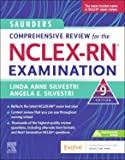
Strategies for Student Success on the Next Generation NCLEX® (NGN) Test Items
Next Generation NCLEX®-style practice questions of all types are illustrated through stand-alone case studies and unfolding case studies. NCSBN Clinical Judgment Measurement Model (NCJMM) is included throughout with case scenarios that integrate the six clinical judgment cognitive skills.

Saunders Q & A Review for the NCLEX-RN® Examination
This edition contains over 6,000 practice questions with each question containing a test-taking strategy and justifications for correct and incorrect answers to enhance review. Questions are organized according to the most recent NCLEX-RN test blueprint Client Needs and Integrated Processes. Questions are written at higher cognitive levels (applying, analyzing, synthesizing, evaluating, and creating) than those on the test itself.

NCLEX-RN Prep Plus by Kaplan
The NCLEX-RN Prep Plus from Kaplan employs expert critical thinking techniques and targeted sample questions. This edition identifies seven types of NGN questions and explains in detail how to approach and answer each type. In addition, it provides 10 critical thinking pathways for analyzing exam questions.

Illustrated Study Guide for the NCLEX-RN® Exam
The 10th edition of the Illustrated Study Guide for the NCLEX-RN Exam, 10th Edition. This study guide gives you a robust, visual, less-intimidating way to remember key facts. 2,500 review questions are now included on the Evolve companion website. 25 additional illustrations and mnemonics make the book more appealing than ever.

NCLEX RN Examination Prep Flashcards (2023 Edition)
NCLEX RN Exam Review FlashCards Study Guide with Practice Test Questions [Full-Color Cards] from Test Prep Books. These flashcards are ready for use, allowing you to begin studying immediately. Each flash card is color-coded for easy subject identification.
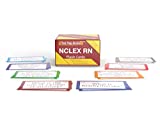
See Also
Other recommended site resources for this nursing care plan:
- Nursing Care Plans (NCP): Ultimate Guide and Database MUST READ!
Over 150+ nursing care plans for different diseases and conditions. Includes our easy-to-follow guide on how to create nursing care plans from scratch. - Nursing Diagnosis Guide and List: All You Need to Know to Master Diagnosing
Our comprehensive guide on how to create and write diagnostic labels. Includes detailed nursing care plan guides for common nursing diagnostic labels.
Other care plans for mental health and psychiatric nursing:
- Alcohol Withdrawal | 5 Care Plans
- Anxiety and Panic Disorders | 7 Care Plans
- Bipolar Disorders | 6 Care Plans
- Major Depression | 9 Care Plans UPDATED!
- Personality Disorders | 4 Care Plans
- Schizophrenia | 6 Care Plans UPDATED!
- Sexual Assault | 1 Care Plan
- Substance Dependence and Abuse | 8 Care Plans UPDATED!
- Suicide Behaviors | 3 Care Plans
References and Sources
To further your research and reading about bipolar disorders, check out these sources:
- Adeniyi, O. V. (2021). Management approach of patients with violent and aggressive behaviour in a district hospital setting in South Africa. NCBI. Retrieved April 17, 2023.
- Akbas, E., & Yigitoglu, G. T. (2020). Nursing care for a patient with bipolar disorder (mixed attack) based on the Neuman Systems Model: A case report. Journal of Psychiatric Nursing, 11(2).
- Backer, C., Murphy, R., Fox, J. R.E., Ulph, F., & Calam, R. (2016, July). Young children’s experiences of living with a parent with bipolar disorder: Understanding the child’s perspective. Psychology and Psychotherapy: Theory, Research and Practice, 90(2).
- Beyer, J. L., & Payne, M. E. (2015, December 23). Nutrition and Bipolar Depression. PubMed. Retrieved April 18, 2023.
- Bonnin, C. d. M., Reinares, M., Martinez-Aran, A., Jimenez, E., Sanchez-Moreno, J., Sole, B., Montejo, L., & Vieta, E. (2019, August). Improving Functioning, Quality of Life, and Well-being in Patients With Bipolar Disorder. International Journal of Neuropsychopharmacology, 22(8).
- Bradley, A. J., Webb-Mitchell, R., Hazu, A., Slater, N., Middleton, B., Gallagher, P., McAllister-Williams, H., & Anderson, K. N. (2017, February). Sleep and circadian rhythm disturbance in bipolar disorder. Psychological Medicine, 47(9).
- Bridi, K. P. B., Loredo-Souza, A. C. M., Fijtman, A., Moreno, M. V., Kauer-Sant’Anna, M., Cereser, K. M. M., & Kunz, M. (2018). Differences in coping strategies in adult patients with bipolar disorder and their first-degree relatives in comparison to healthy controls. Trends in Psychiatry and Psychotherapy, 40(4).
- Campos, M. (2018, June 25). Probiotics for bipolar disorder mania. Harvard Health. Retrieved April 18, 2023.
- Citrome, L. L., & Bienenfeld, D. (2022, November 2). Aggression: Overview, Epidemiology, Assessment and Differential Diagnosis. Medscape Reference. Retrieved April 7, 2023.
- Fico, G., Anmella, G., Pacchiarotti, I., Verdolini, N., Sague-Vilavella, M., Corponi, F., Manchia, M., Vieta, E., & Murru, A. (2020, December). The biology of aggressive behavior in bipolar disorder: A systematic review. Neuroscience and Biobehavioral Reviews, 119.
- Fisher, A., Manicavasagar, V., Sharpe, L., Laidsaar-Powell, R., & Juraskova, I. (2018). A qualitative exploration of patient and family views and experiences of treatment decisionmaking in bipolar II disorder. Journal of Mental Health, 27.
- Gold, A. K., & Sylvia, L. G. (2016, June). The role of sleep in bipolar disorder. Nature and Science of Sleep, 8.
- Hedya, S. A., Avula, A., & Swoboda, H. D. (2023, January 26). Lithium Toxicity – StatPearls. NCBI. Retrieved April 7, 2023.
- Jain, A., & Mitra, P. (2023, February 20). Bipolar Disorder – StatPearls. NCBI. Retrieved April 7, 2023.
- Legg, T. J. (2019, February 5). Bipolar disorder and anger: Management and coping. Medical News Today. Retrieved April 7, 2023.
- McMillen, M. (2021, January 27). Why A Structured Routine Is So Important for People With Bipolar Disorder. HealthCentral. Retrieved April 7, 2023.
- Murr, A. C., Moorhouse, M. F., & Doenges, M. E. (2010). Nursing Care Plans: Guidelines for Individualizing Client Care Across the Life Span. F.A. Davis Company.
- Owen, R., Gooding, P., Dempsey, R., & Jones, S. (2016). The Reciprocal Relationship between Bipolar Disorder and Social Interaction: A Qualitative Investigation. Clinical Psychology and Psychotherapy.
- Saripalli, V., & Raypole, C. (2021, April 28). Grandiosity: Everything You Need to Know. Psych Central. Retrieved April 7, 2023.
- Soreff, S., & Xiong, G. L. (2022, February 11). Bipolar Disorder: Practice Essentials, Background, Pathophysiology. Medscape Reference. Retrieved April 7, 2023, from
- Stephenson, L. A., Gergel, T., Gieselmann, A., Scholten, M., Keene, A. R., Rifkin, L., & Owen, G. (2020, October 16). Advance Decision Making in Bipolar: A Systematic Review. NCBI. Retrieved April 17, 2023.
- Syahrir, F. (2021). Management of Occupational Hygiene Therapy on the Ability to Perform Self-Care on Deficient Self-Care Patients Who are Cared for in RSKD, South Sulawesi Province. Medico-Legal Update, 21(1).
- Upstate University Hospital. (2019). Placing Patient on Suicide Precautions. Upstate Medical University. Retrieved April 7, 2023.
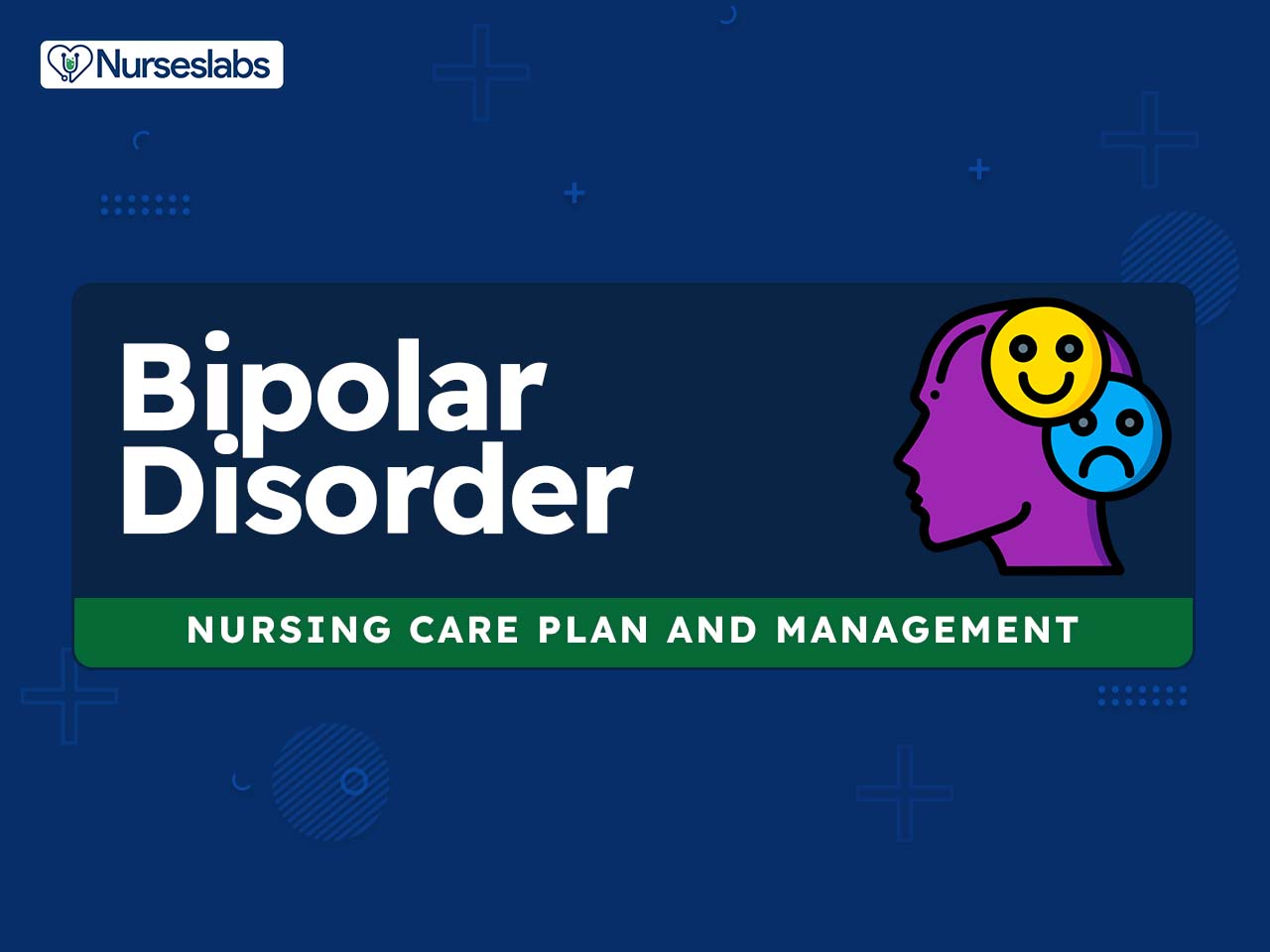

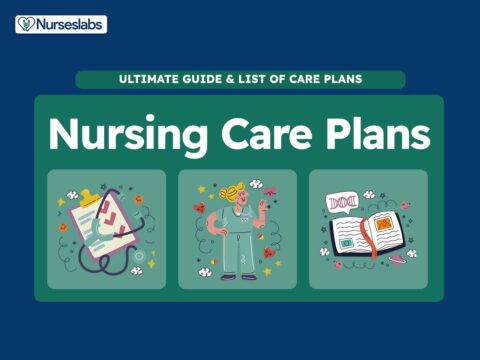

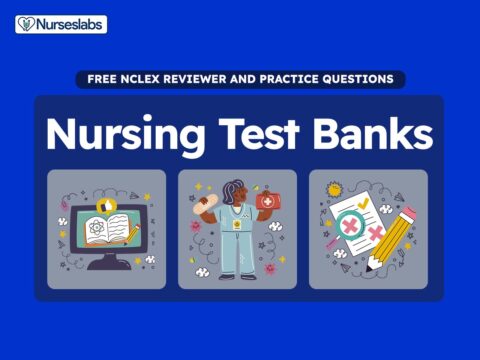
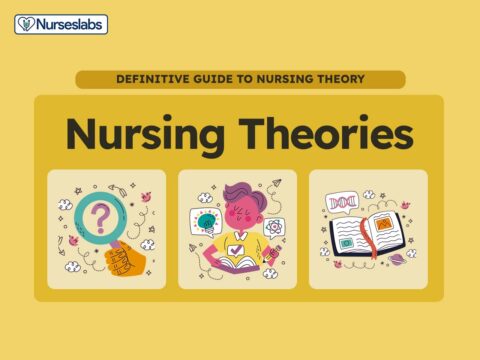



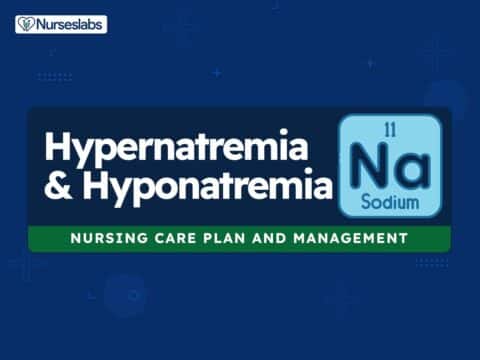


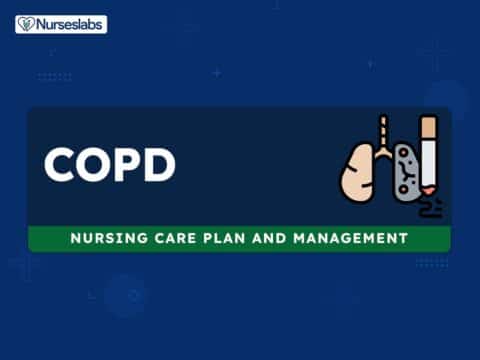
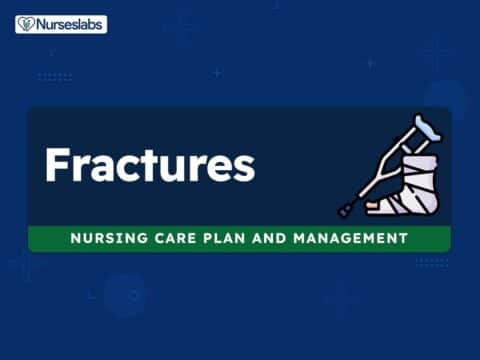
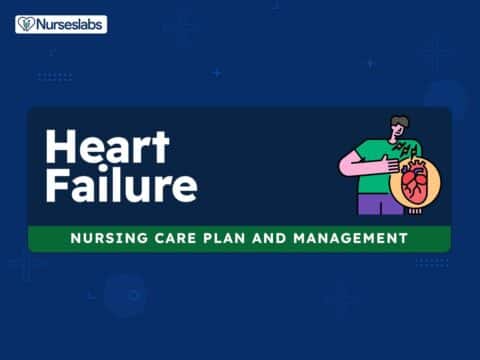
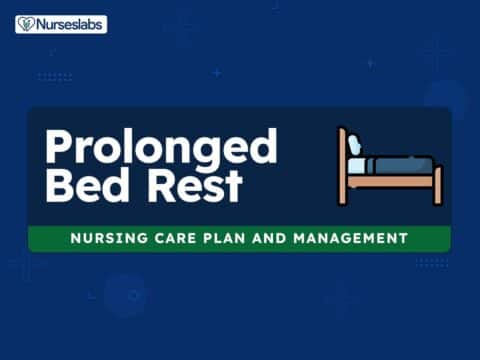
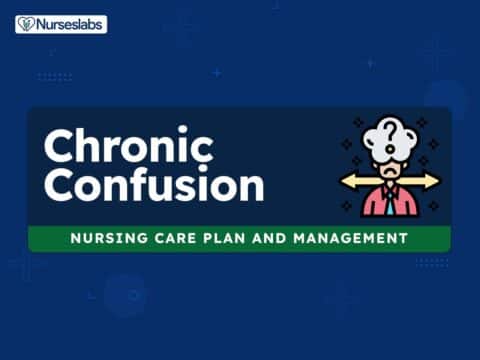
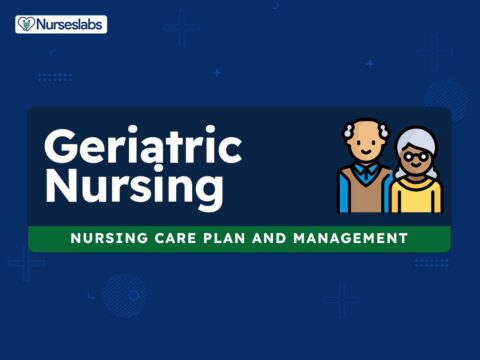
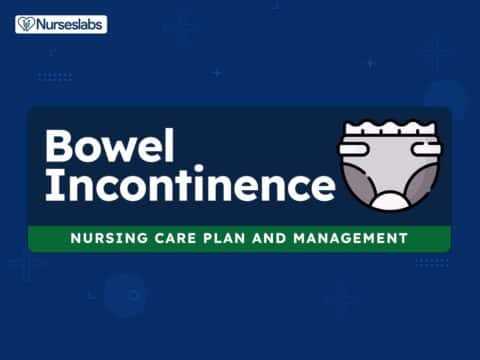
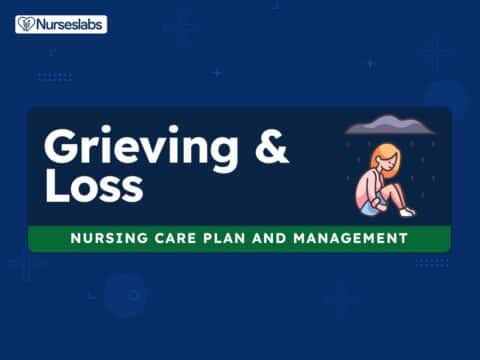
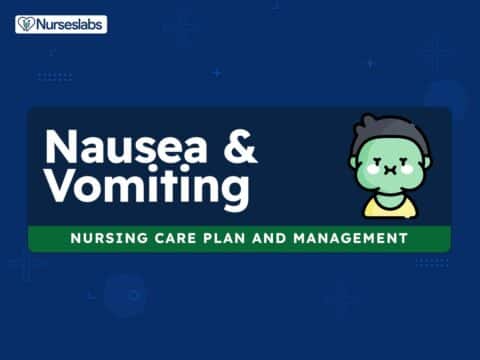
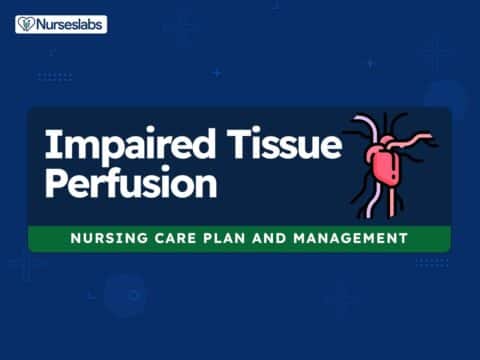

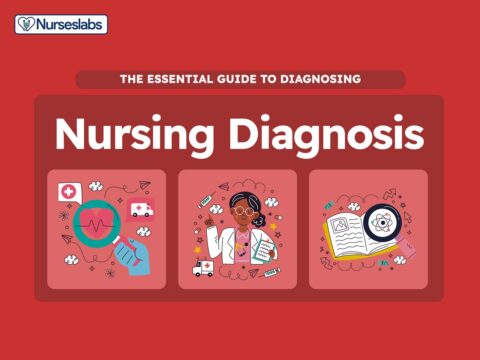

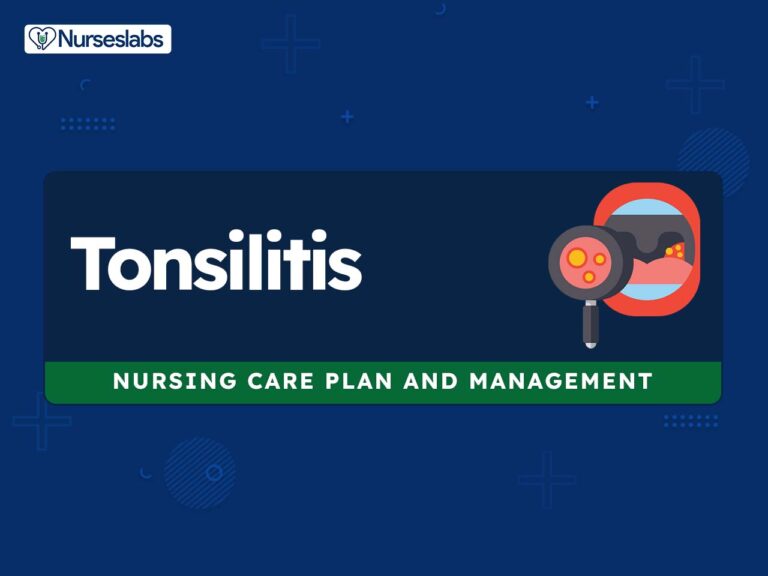
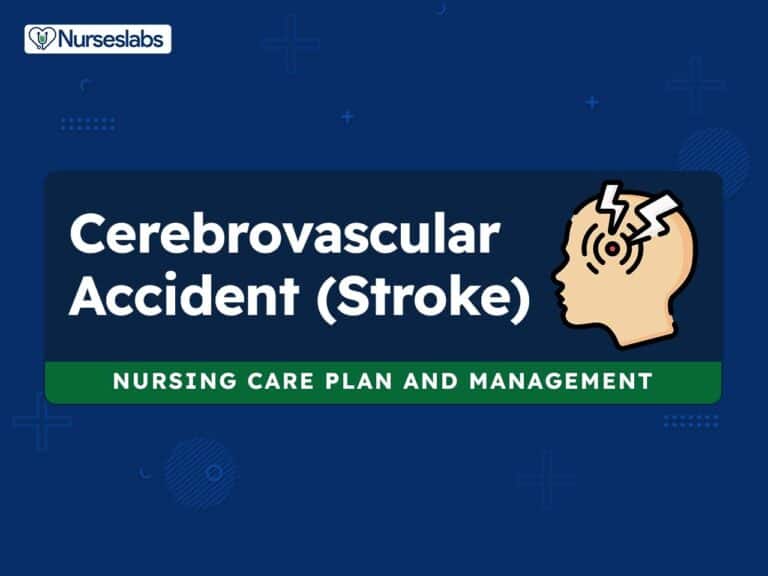


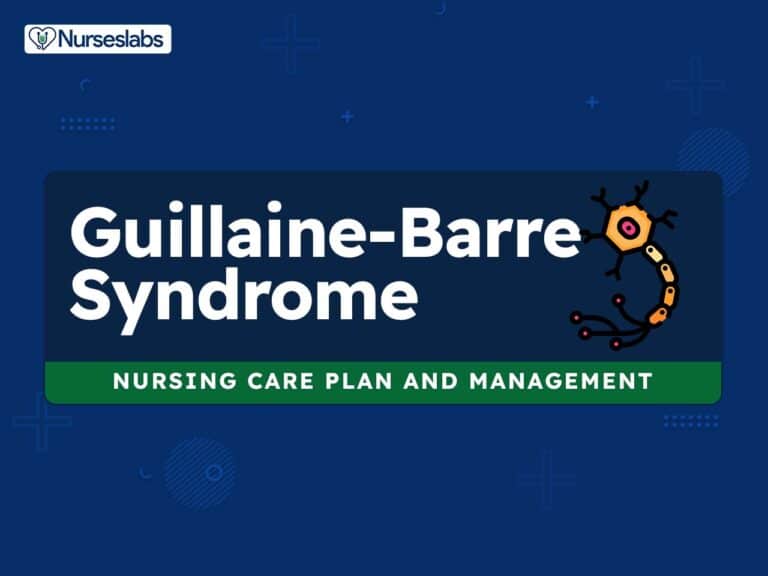


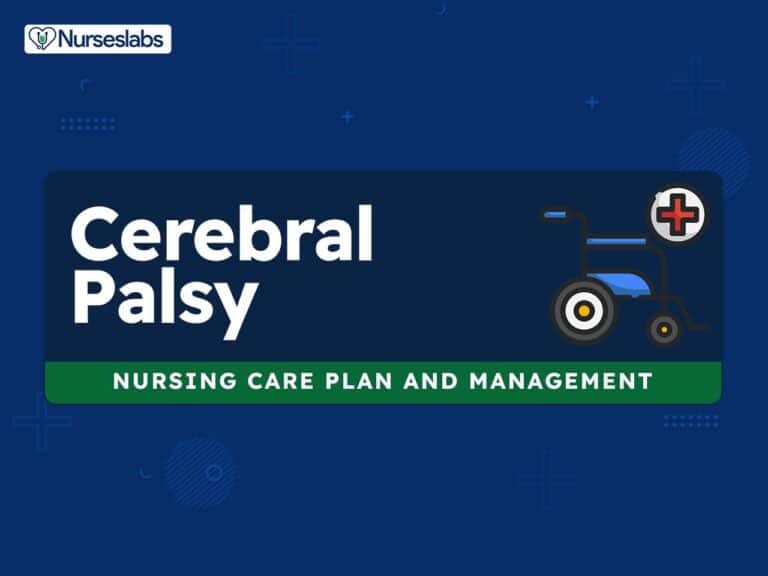
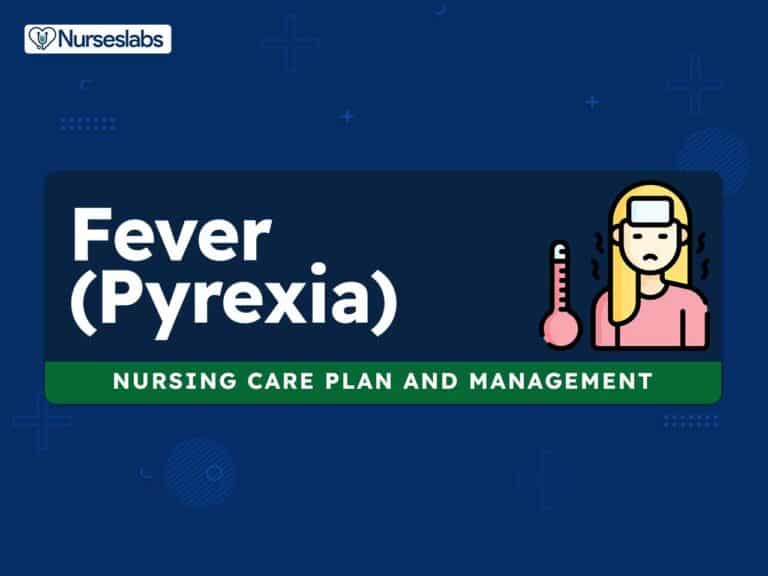
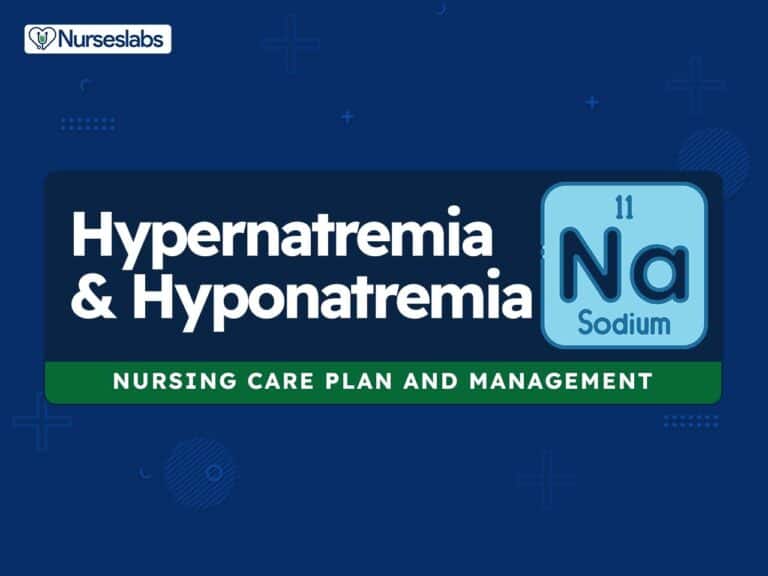
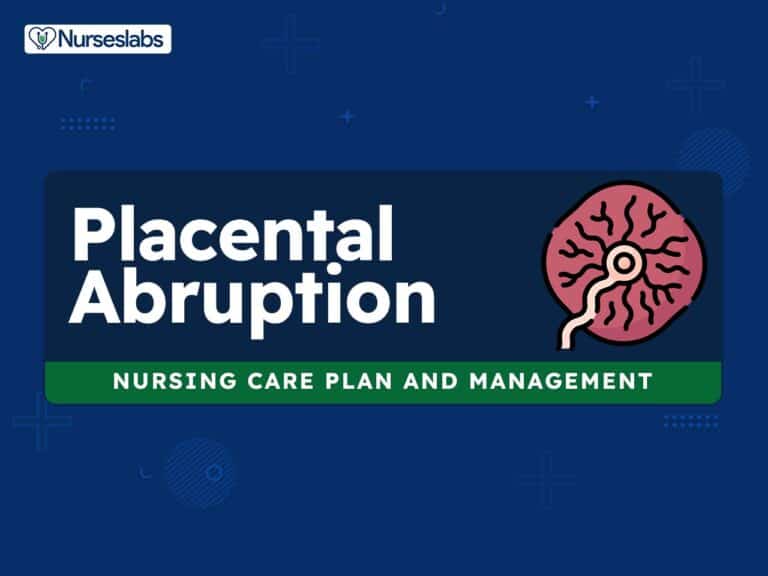
Leave a Comment